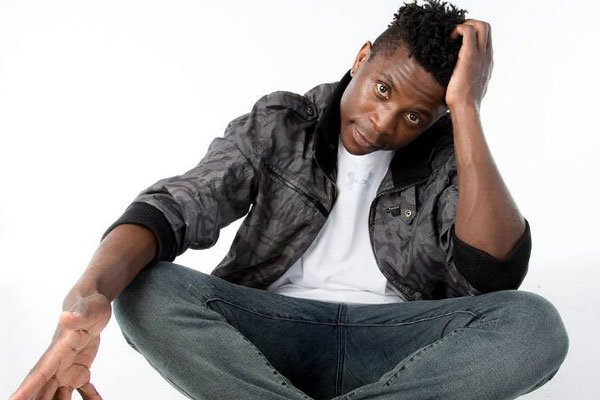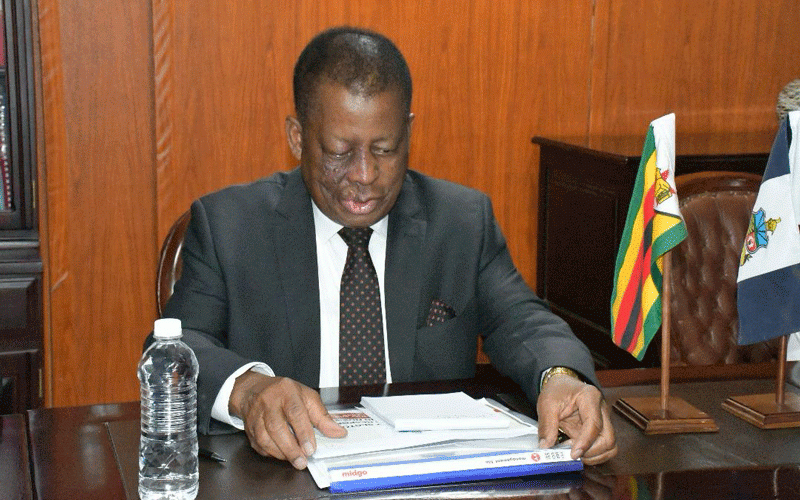
For the majority of students at any level of education, Mathematics is considered the hardest subject. But the same cannot be said about dancer, Sean Mambwere, who is brilliant with numbers.
the style interview By Kennedy Nyavaya

Mambwere, a National University of Science and Technology (Nust) alumni, has a degree in Applied Mathematics but that is not where the 31-year-old’s peculiarity lies.
Despite being an academic genius from junior school days at Chembira Primary School in Glen Norah — a high density suburb where he was born and bred — Mambwere did the somewhat unthinkable when he chose to pursue dance full-time after university.
While under the guidance of his parents then, he had to balance his love for physical activity and books until he finished school.
After university and finally attaining the liberty to choose a niche, he chose the stage, although at one point, he got offers from big institutions such as as the Reserve Bank of Zimbabwe (RBZ).
His career, which stretches over a decade, has resulted in three National Arts Merits Awards (Namas) namely Best Male Dancer, Best Choreographer and Best Dance Group, which he won in a row from 2013 to 2015.
To date he teaches over 600 children in local schools during the term in addition to international tours, choreography for different festivals and dance classes at M&M Dance Factory in Harare.
- Chamisa under fire over US$120K donation
- Mavhunga puts DeMbare into Chibuku quarterfinals
- Pension funds bet on Cabora Bassa oilfields
- Councils defy govt fire tender directive
Keep Reading
The Standard Style’s Kennedy Nyavaya (KN) caught up with Mambwere (SM), who spoke about his career and future goals. Below are excerpts from the interview.
KN: Please take us into your education journey and what led you into majoring in Applied Maths.
SM: I was generally a good school boy and I was always on top in my class starting from primary to university. So, I was just brilliant at school and at A’ Level I chose Maths, Physics and Chemistry and I attained 12 points.
However, before I wrote my O’ Level final exams, I got below average marks in Maths. I remember people saying I was not good at the subject, but because I loved to work hard, I wanted to prove those people wrong and when I wrote Maths I passed with an A. Those people thought it was luck, so I decided to prove them wrong once more by taking the subject up at A’ level and that forced me to take up sciences.
KN: Who are these “people” you are referring to?
SM: Some family members, friends and classmates that I grew up with. These were generally the people whose voice I really took seriously.
KN: Apart from proving people wrong, was it ever defined to you what professional route you would take considering you were pursuing Mathematics to prove people wrong?
SM: My passion was sport. I was good at soccer and at Bernard Mizeki we used to have soccer tournaments and I was scouted by a certain football academy, but my family stopped me from playing. When I went to university, I still played soccer but on a low level.
KN: How did you balance between school and the art?
SM: It was passion and I was organised in school. I used to focus on dance when it was the right time and the same with school. I would sleep late just to catch up on my school work.
KN: You dance professionally, something that is rare in high-density suburbs. Where did the inspiration to dance emanate from?
SM: I come from a family of six where clothes would be passed down from the oldest to the youngest sibling. So, if my oldest brother did not want to wear his sneakers, he would pass them to the next person in line and it trickled down. My brothers used to have these cool hip-hop clothes like basketball jerseys, Jordan sneakers and Adidas, so I was very inquisitive on why they bought that and I started following that lifestyle eventually.
In doing my research, I bumped into the music and I started listening to it. I also came across people who danced to that kind of music, which made me fall in love with dancing. KN: The arts industry in Zimbabwe is not financially-rewarding and only a selected few have made it. Did you ever consider this in your decision?
SM: The seal to say I will start dancing really came when I was in my third year at university; when I went for an attachment, just sitting behind the desk all year-long working on a company and playing around with figures.
I was making others happy, but I was not because I was just sitting using my brain yet I wanted to use it and my body at the same time. That one year was enough for me to decide that I did not want to do that my whole life. I would rather do something I love and enjoy and in the process make other people enjoy what they are doing in their spheres of life.
God had a part to play in that as well because He comforted me and assured me that He would be with me. It became apparent to me; it took a while and I cannot say I am there but I am definitely not where people expected me to be because of what I chose.
KN: In addition to your awards, what have you achieved in your career?
SM: The biggest room in my career is the room to always improve and get better. I have not reached the pinnacle of what I want to achieve because I still feel like I can do better, but I am also very proud of what I have managed to achieve. Funny enough, it might sound cliché, but I genuinely do not do what I do because I want to get awards. I do it because I love it.
KN: Are you satisfied with where you are though?
SM: (Chuckles) No one has ever asked me that question, but I am satisfied. Apart from being satisfied, I think the right word to use is I am content. If my life was to stay as it is, I am happy because I have been obedient to what I know I have been called to do and I am seeing the joy that comes with it.
KN: How did your family react at first?
SM: I love my family and I also understand why they said what they said before because they wanted a better life for me. Having chosen the path that I took, it did not sit well with them. There was a bit of friction and tension, which is understandable because I do not know about other parents, but parents need some peace with their children; knowing that they are catered for in life.
It took a while for my parents to come to terms with my choice. As of my mother, it took about five years for her to come and watch me dance and add another year on top of that, that was my dad.
KN: How did you feel when your parents finally came to terms with your choice?
SM: It was a relief because what brought the change was seeing some of the fruits from my work change. I feel I am pioneering. Although not the first, I feel I am one of the few to produce fruits where they are not expected.
KN: Do you think dance as an industry is being given a chance to flourish in Zimbabwe?
SM: Dance in Zimbabwe is not a platform to showcase and grow. There are many challenges, including circumstances of families dancers come from, the economic environment because you hardly find sponsors and the demeaning view people have towards arts.
People do not see it as a profession or worthy vocation and I tell people I dance for a living, they ask what else I do apart from dancing. In other countries, it is the other way round because the highest paid people are entertainers, dancers included. KN: Do you have a family?
SM: No, but it is in my plans because I want to get married soon. I have a lovely girlfriend and we are working towards that. It will happen anytime soon.
KN: Take me into your lifestyle. Have you faced any stereotypes or labelling before for choosing arts?
SM: Stereotypes are there and what hurts the most is that it is a pandemic and it’s across the board. It runs everywhere you go, not just locally.
For example, if someone says ”I dance for a living”, the assumption about that person is they dance because they failed in school, of which for me that is not the case. I left office work because of the passion and I felt God was calling me to dance.
KN: What is your ultimate goal as a dancer?
SM: The goal is to try and change the narrative for the perceptions that society has about dance and its value in relation to other vocations.
KN: How would you rate talent and hardwork?
SM: Talent can exist without hardwork, but it is not recognised without discipline. I can sit at home and be a Maths genius, but if I do not do anything about it; it will just be a talent with no benefits for me or anyone else.
KN: You keep on mentioning God a lot. I assume you are a Christian, how do you relate your faith to dancing?
SM: I did not fall into the traps of fame and it is because of my faith and walk with God. How I link it to dance is that God is the creator of everything and while most dancers are not original in their creativity, I think of God’s creativity provides ideas for me also to be creative with my art.
That means so much to me knowing that I will never get to a point where I say I am down and out then I start copying and all.











